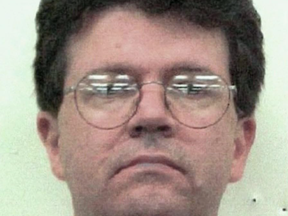
Article content
A palatable fear was in the air for gay and bisexual men in the early 1990s.
AIDS was ravaging communities from coast to coast in the U.S., Canada and around the world. Over the course of years, hundreds of thousands would be dead.
Article content
In New York City, another insidious predator was preying on the community. He would become known by the city’s tabloids as the Last Call Killer and his exact toll of victims remains a mystery to this day.
Now, a new four-part HBO true crime documentary entitled Last Call: When a Serial Killer Stalked Queer New York, unpacks the time, place and troubling questions about the murders and their investigation.
Advertisement 2
Article content
Townhouse Bar in Midtown Manhattan is a popular piano bar for well-heeled gay men. It was the last place Peter Stickney Anderson, 54, would be seen alive.
On May 6, 1991, a highway worker discovered his remains in a trash barrel off the Pennsylvania Turnpike. An autopsy revealed that Anderson — later identified by his belongs further along the busy highway — had been stabbed to death.
He had been castrated postmortem and his penis stuck in his mouth.
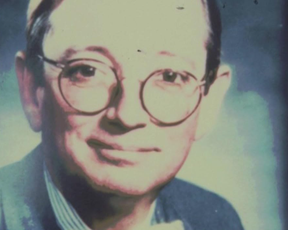
At the time of the murders, the gay community was being stigmatized by the harrowing plague of AIDS and the explosive murder rate in New York City, which brought fresh horrors every day to distracted homicide cops.
RECOMMENDED VIDEO
“It’s the kind of thing where if you squint, you can see exactly why this didn’t generate any press,” author Elon Green told Vanity Fair.
Article content
Advertisement 3
Article content
“And of course, it didn’t help [that] the victims were presumed to be gay. If you were going to have your murder written about in those years, you had to be straight and white, and you’d have to be killed in Central Park.”
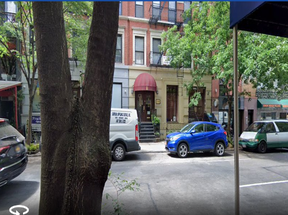
Green wrote the book the series is based on.
Massachusetts businessman Thomas Richard Mulcahy, 57, a married father of four who loved musical theatre and old Hollywood glamour was the next to die.
In July 1992, Mulcahy was in the Big Apple on business when he disappeared. His last credit card transactions were from the Townhouse on July 8.
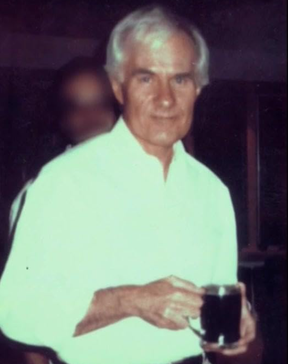
Two days later, road workers found five trash bags along a New Jersey highway. Inside were Mulcahy’s intestines, stomach, a latex glove, and a plastic cup. Another bag contained his skin with a bite mark, a third contained a blood-stained compass saw.
Advertisement 4
Article content
At a picnic area along the Garden State Parkway cops found another bag containing his legs. He had been stabbed to death, his remains washed clean.
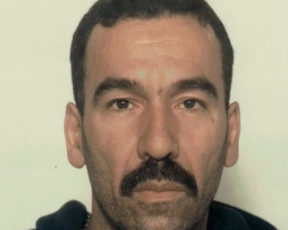
Next to die was 44-year-old sex worker Anthony Edward Marrero. The last time anyone saw him was in the vicinity of the prostitution-packed Port Authority Bus Terminal.
On May 10, 1993, six plastic bags containing his remains were discovered alongside a busy roadway. His body had been dissected into seven pieces. He died of multiple stab wounds, his remains cleansed of blood.
-
![Monica and Fabio Sementilli. Cops say she conspired with her lover to murder the beloved hairstylist. FACEBOOK]()
HUNTER EXCLUSIVE: Man accused in Fabio Sementilli killing pleads guilty
-
![Juteah Downey.]()
HUNTER: Parasite pimp hammered with 15-year prison sentence
Michael J. Sakara, 56, was last seen alive boozing with a man who called himself “Mark” or “John” at the Five Oaks in Greenwich Village. The mystery man said he was a nurse at now-closed St. Vincent’s Hospital.
Advertisement 5
Article content
On July 31, 1993, a suitcase containing Sakara’s clothes and wallet was found in Westchester County, north of Gotham.
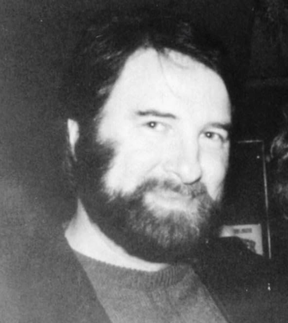
Hours later a hot dog vendor made the macabre discovery of Sakara’s head and arms dumped in a trash barrel. His body had been cut into seven pieces. Sakara had been stabbed and bludgeoned to death.
After Sakara’s slaying, investigators realized they had a big problem. A task force was formed comprising cops from New Jersey, New York and Pennsylvania.
But despite heroic efforts by authorities and the community, along with some tantalizing threads, the probe was out of gas by November 1993. Evidence indicated that the killer lived on Staten Island and was a nurse.
In 1999, using a new fingerprinting technique, NJ State Police detectives were able to lift 35 prints from the evidence.
Advertisement 6
Article content
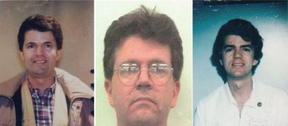
Then, in 2001, they heard back from Maine — whose prints had only recently gone online — and learned that their man was a Staten Island nurse named Richard Rogers. He had been acquitted in the 1973 beating death of his roommate.
Born in Massachusetts in 1950, Rogers grew up in Florida as a skinny, timid boy who was bullied for his effeminate personality, high-pitched voice and penchant for attending his mom’s Girl Scout meetings.
Besides the Maine incident, Rogers stabbed a female neighbour for some unknown reason in the late 1960s.

When interrogated by New Jersey detectives, Rogers copped to the Sakara murder.
At his 2005 trial, Rogers did not testify. It took the jury three hours to convict him of the Marrero and Mulcahy slayings. He was not charged in the others. Now 73, he is serving a life sentence in the New Jersey State Prison.
He is suspected of at least seven murders in total, including a 1982 Florida murder and one in 1986 in Connecticut.
Cops believe murder was part of Rogers’ vacation ritual.
Article content
Stay connected with us on social media platform for instant update click here to join our Twitter, & Facebook
We are now on Telegram. Click here to join our channel (@TechiUpdate) and stay updated with the latest Technology headlines.
For all the latest For Top Stories News Click Here




Comments
Postmedia is committed to maintaining a lively but civil forum for discussion and encourage all readers to share their views on our articles. Comments may take up to an hour for moderation before appearing on the site. We ask you to keep your comments relevant and respectful. We have enabled email notifications—you will now receive an email if you receive a reply to your comment, there is an update to a comment thread you follow or if a user you follow comments. Visit our Community Guidelines for more information and details on how to adjust your email settings.
Join the Conversation